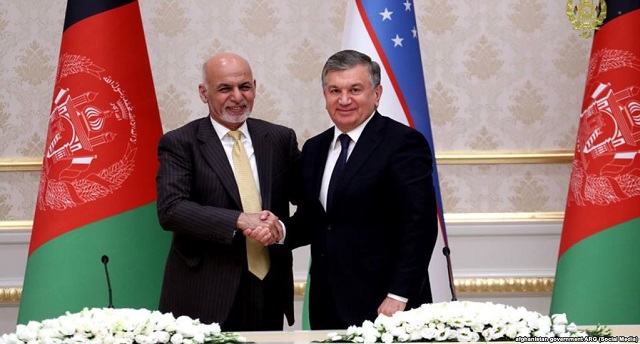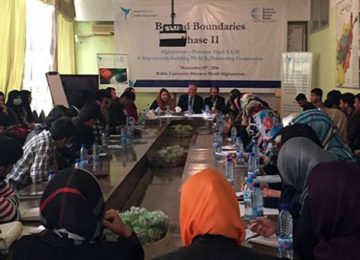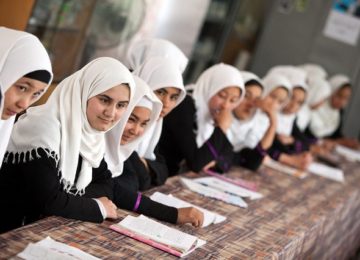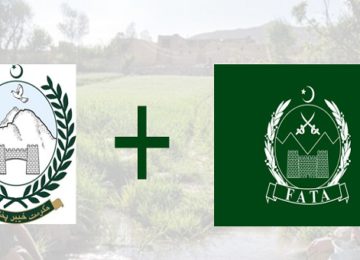December 06, 2017
Uzbekistan and Afghanistan have signed an agreement to extend a railroad connecting the two countries in a move that may eventually give Uzbekistan a direct link to sea ports.
Landlocked Uzbekistan’s access to marine shipping is very limited.
In 2011, the Uzbek state railway company, Ozbekiston Temir Yollari, built a short link between Hairatan, a town on the Uzbek-Afghan border, and Mazar-e Sharif, a major city in northern Afghanistan.
Tashkent has since expressed interest in extending that line to Herat, another Afghan city in the northwest, and a gateway to Iran. Another link, already under construction, will connect Herat to Iran, which may eventually enable Uzbekistan to send cargoes to and from Iran’s Persian Gulf ports.
Uzbek President Shavkat Mirziyoev’s office said in a statement that he and visiting Afghan President Ashraf Ghani signed an agreement on the construction of the Mazar-e Sharif-Herat railroad.
Ghani said the agreement inspired hope for growing economic ties between the two neighboring countries, Russian news agency Interfax reported.
“Afghanistan wants to be Uzbekistan’s reliable trade and economic partner, expand mutually beneficial contacts, and set upnew joint ventures,” Interfax quoted Ghani as saying.
The statement from Mirziyoev’s office provided no details on the cost or source of funding for the rail project.
The original, short link was almost fully financed by the Asian Development Bank, which has also financed studies for the expansion project.
Mirziyoev and Ghani also signed 20 other deals, including an agreement on the construction of a new electric power line and deals for supplies of Uzbek agricultural products, medicines, and other goods to Afghanistan.
Interfax reported that they also reached agreement on measures to ensure the security of the Hairatan Bridge connecting the two countries.
This piece originally appeared on Radio Free Europe/Radio Liberty on December 06, 2017. Original link.
Disclaimer: Views expressed on this blog are not necessarily endorsed or supported by the Center for Research and Security Studies, Islamabad.








